Strumpshaw Fen Slime Moulds, Nettle Rust, Eyelash Fungi & Hibernating Ladybirds — March 2024
Early March
At the Zen Zone in early March we spotted an Enteridium lycoperdon (false puffball) aethalium in it’s early mucilaginous stage and were able to see how it changed on two subsequent visits.
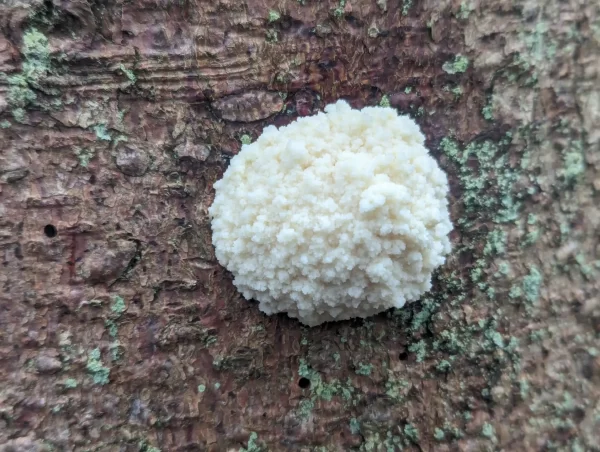
The Zen Zone at Strumpshaw Fen – 10th March 2023
Mid March
In mid-March we spotted some carmine Lycogala near Basecamp
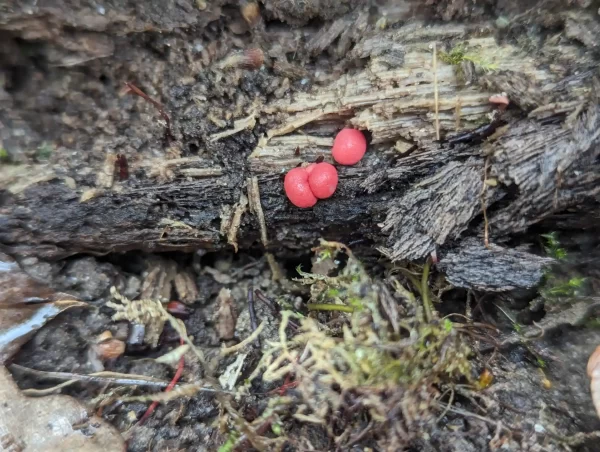
Strumpshaw Fen near Basecamp
17th March 2024
On a log also near Basecamp some Metatrichia slime mould — some of it parasitised.
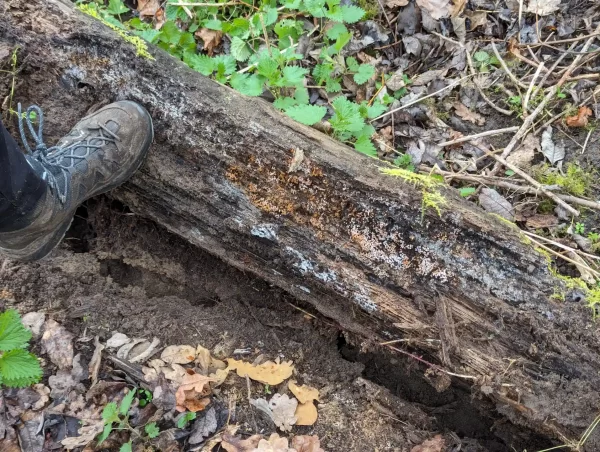
Strumpshaw Fen near Basecamp
17th March 2024
In the photo below you can see empty peridial cups, cinnamon-buff capillitial masses and the beginnings of parasitisation — the white mould.
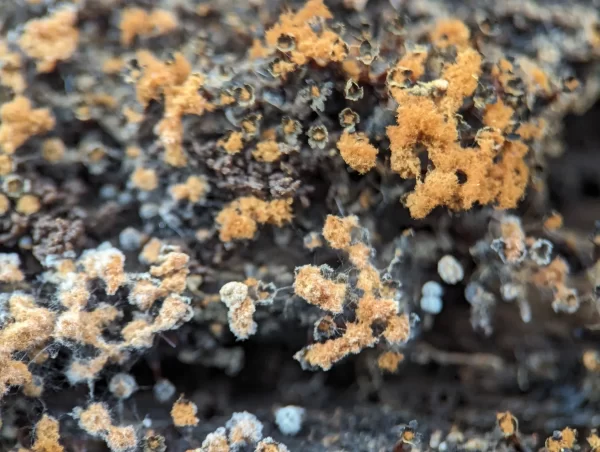
Strumpshaw Fen near Basecamp
17th March 2024
Parasitised sporangia.
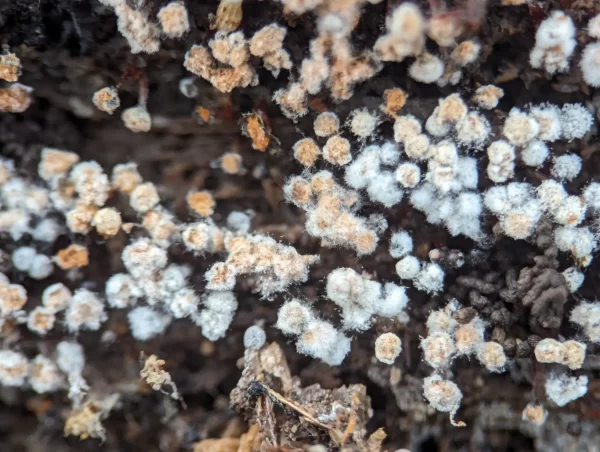
Strumpshaw Fen near Basecamp
17th March 2024
Before The Outpost we saw for the last time some hibernating ladybirds (we first spotted them in late November 2023) — the following week they were gone.
In the photo one of the ladybirds has white spots.
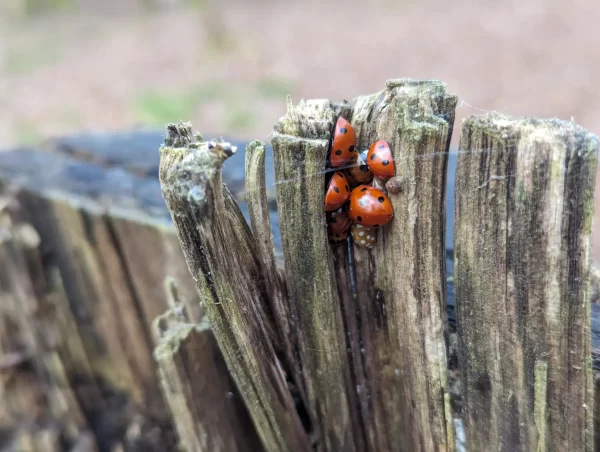
Near The Outpost Strumpshaw Fen
17th March 2024
In The Outpost we spotted a slime mould that was probably Stemonitis fusca.
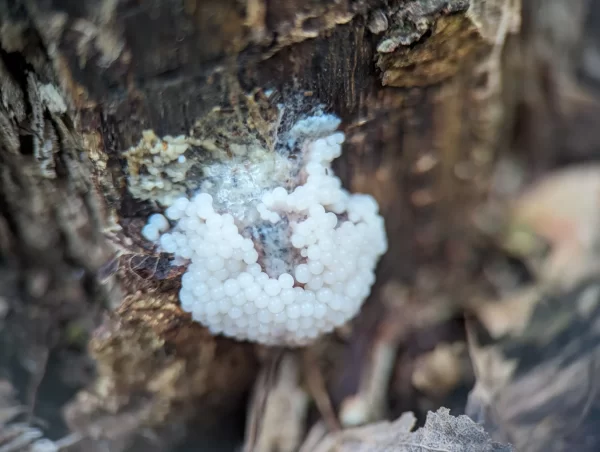
At The Outpost Strumpshaw Fen
17th March 2024
This is a timelapse video by Daniel Brunner of Stemonitis fusca.
Late March
In late March we noticed a decaying trunk in The Dell that hosted a number of Hemitrichia and Scutellinia groups.
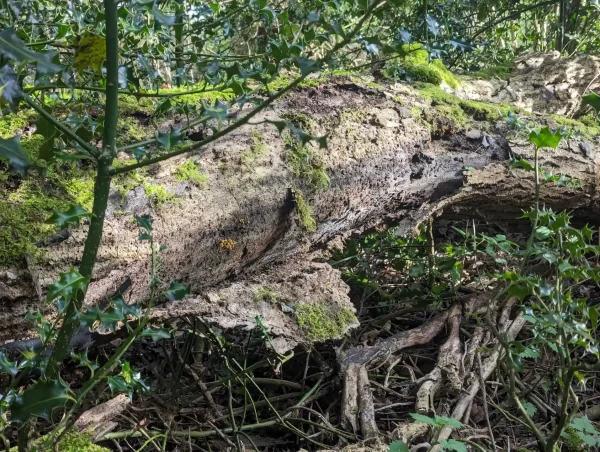
The Dell at Strumpshaw Fen – 24th March 2024
Hemitrichia on the decaying trunk at The Dell.
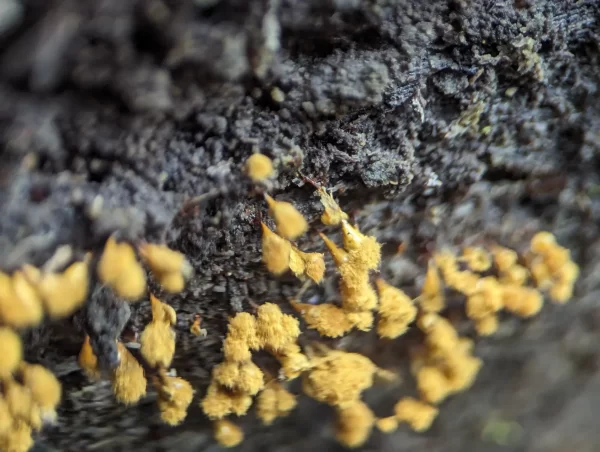
The Dell at Strumpshaw Fen – 24th March 2024
After The Outpost we found a small log with more Hemitrichia.
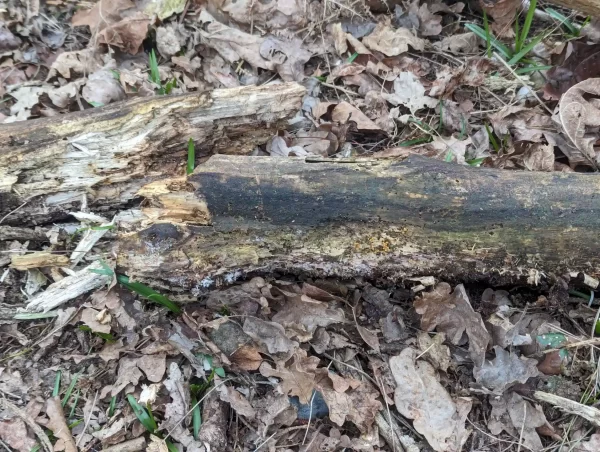
End of the Woodland Trail at Strumpshaw Fen
24th March 2024
Hemitrichi clavata and H. calyculata are very similar — at first I felt that these were H. calyculata — they are somewhat different in form and colour to the Hemitrichia at The Dell on the decaying trunk.
These slime mould sporangia have a stalk that is distinct in colour to that of the cup and to a certain extent in structure, whereas those at The Dell have a stalk and cup that seem to merge more gradually and overall the sporangia are more yellow than those here.
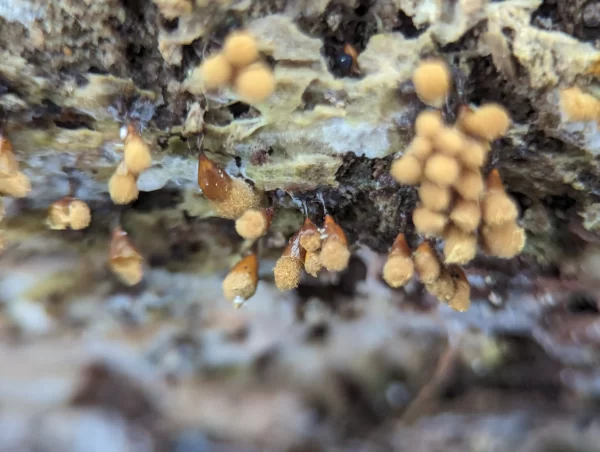
End of the Woodland Trail at Strumpshaw Fen
24th March 2024
The literature states that H. clavata is distinguished from H. calyculata by a deeper cup that tapers to merge with the stem. H. calyculata has a narrower stem and a shallower cup that is more abruptly separated from the stem [1][2][3].
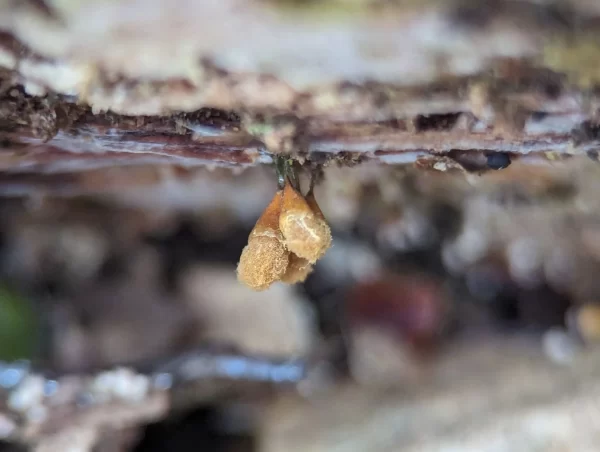
End of the Woodland Trail at Strumpshaw Fen
24th March 2024
End of March
After The Dell we spotted a decaying Enteridium lycoperdon.
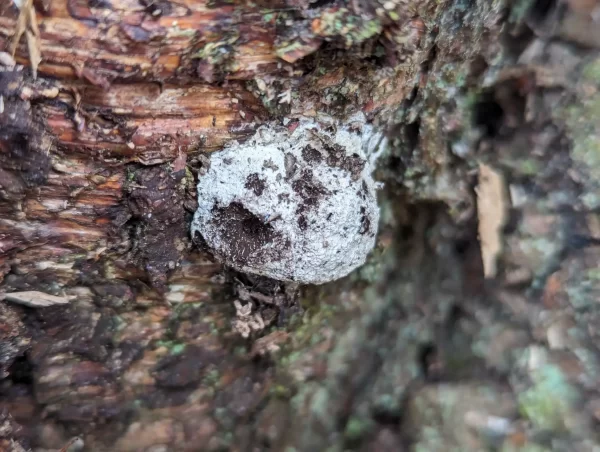
near The Dell – 31st March 2024
Near the Gnarly Oak we noticed some of the nettles with a strange but wonderful yellow growth that we had never seen before — Puccinia urticata (nettle rust).
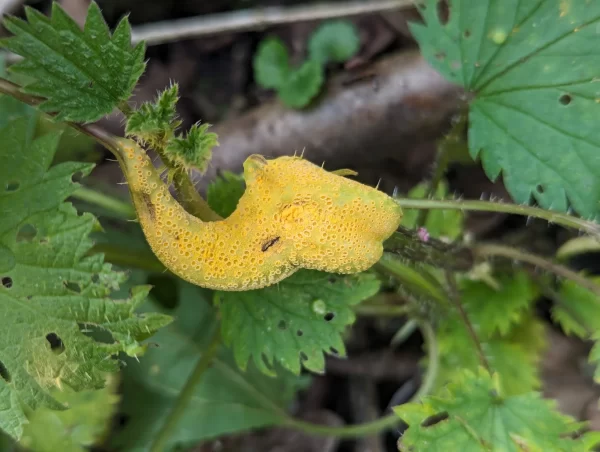
Near the Gnarly Oak at Strumpshaw Fen
31st March 2024
Near The Outpost another Enteridium lycoperdon forming a sheeny peridium under which the spores are forming.
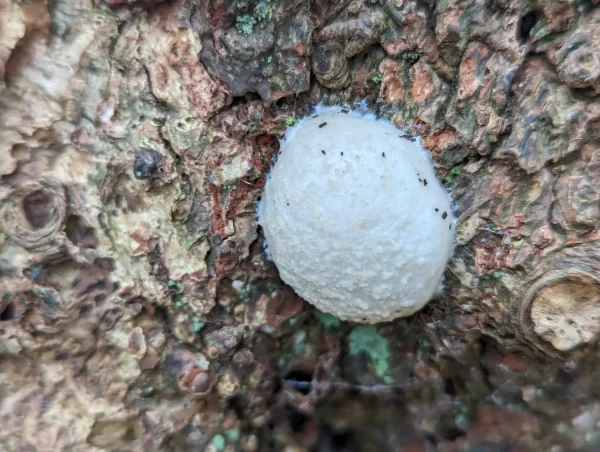
near The Outpost – 31st March 2024
Towards end of the woodland trail we came across a some wonderful prolific Scutellinia (eyelash fungi) on a decaying damp log and trunk.
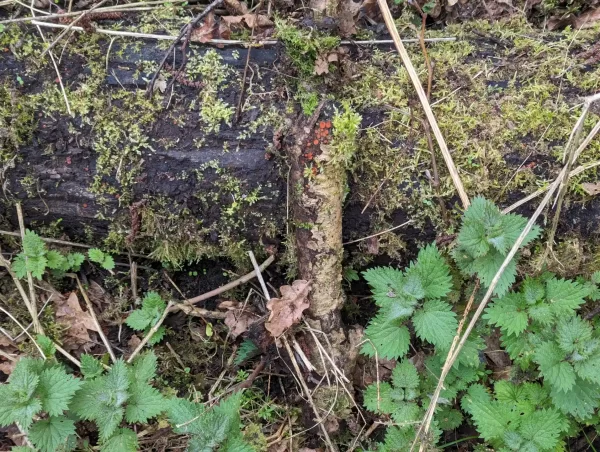
End of the Woodland Trail at Strumpshaw Fen
31st March
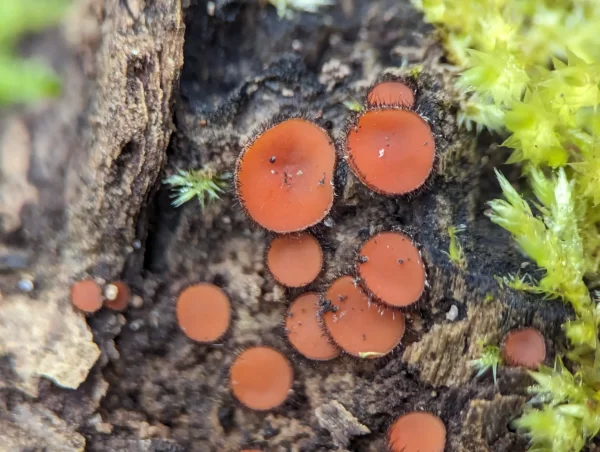
End of the Woodland Trail at Strumpshaw Fen
31st March
This is wonderful with the water droplets attached to the eyelashes!
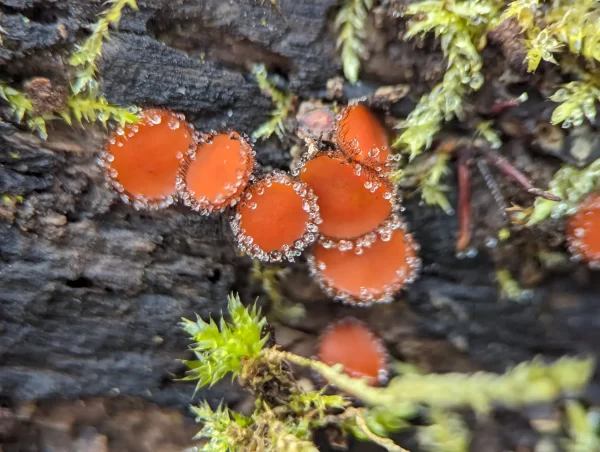
End of the Woodland Trail at Strumpshaw Fen
31st March
[1] Myxomycetes : A Handbook of Slime Molds – Stephenson & Stempen.